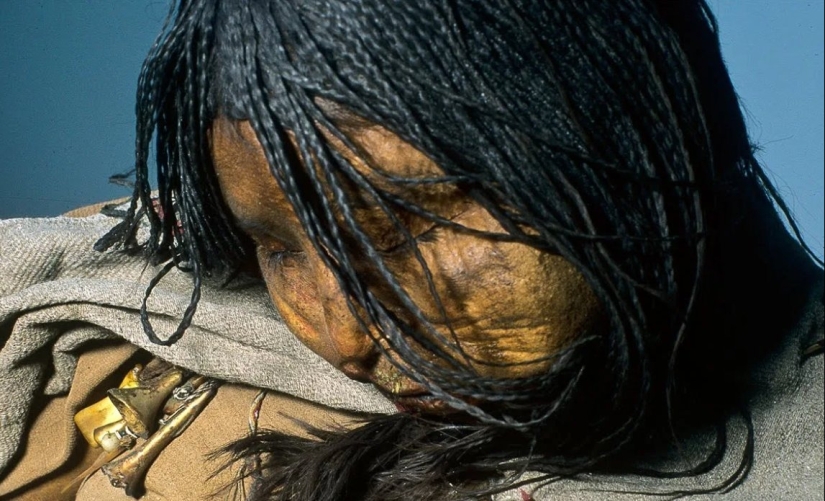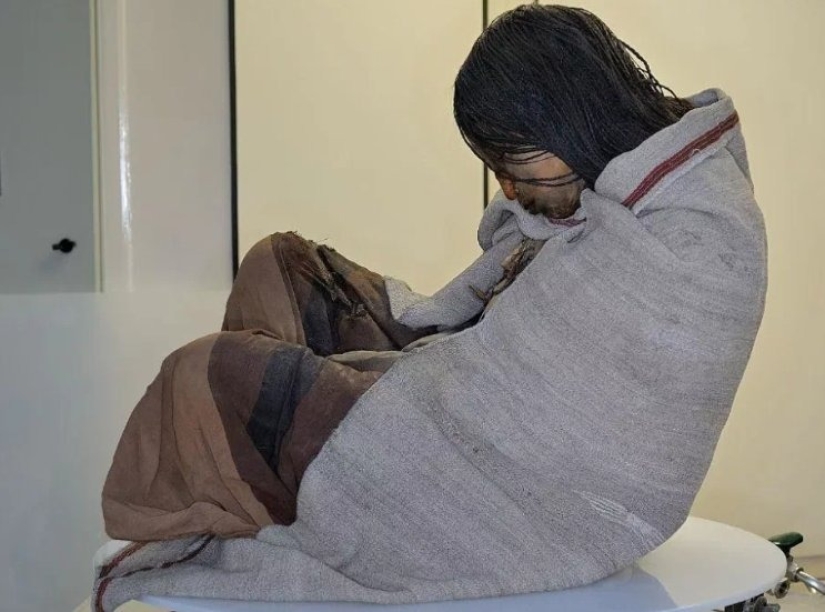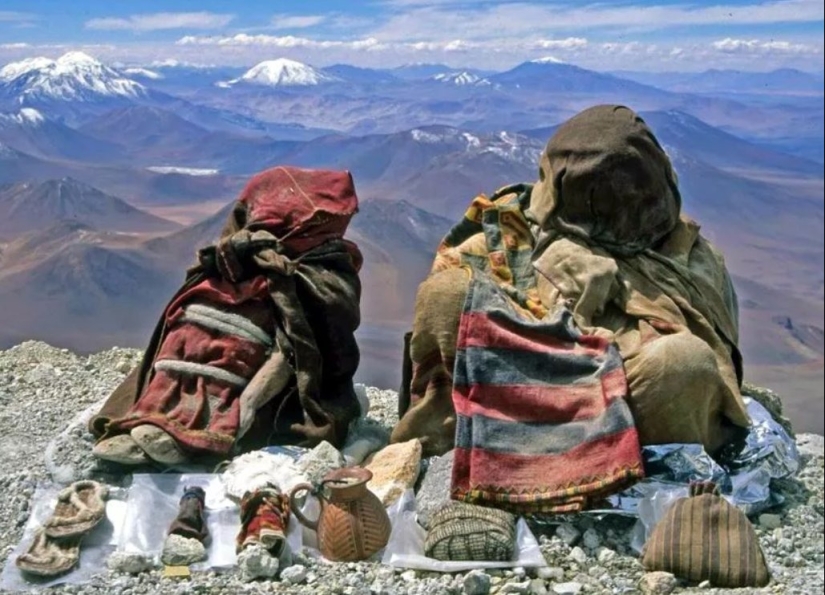Inca Child Sacrifice: The Terrifying Mysteries of the Capacocha Ritual
Categories: Asia | People | Society | Tradition | Tragedy | World
By Vika https://pictolic.com/article/inca-child-sacrifice-the-terrifying-mysteries-of-the-capacocha-ritual.htmlIn the subordination of the Incas were several tribes, from which they systematically took away children for sacrifice. They were taken from their families in a solemn, almost festive atmosphere in order to be taken to one of the large cities and allegedly “improved”. After that, certain rituals were performed on the children, and then taken to the top of the mountain to be sacrificed.
3 PHOTOS

1. There were many reasons for such a terrible ritual: for the sake of winning the war, delivering their lands from drought or natural disasters, and the like.
In 1999, three mummies were found on the top of the Lullaillaco volcano: two small children 4-5 years old, and one 13-year-old girl. After examining the bodies, the nuances of this terrible ritual, which the Incas called "capacocha", became known.
The mummified 13-year-old girl looks like she died recently. Due to the extreme cold at high altitude, all of her internal organs were completely preserved. She was found in clothes, sitting on the ground with her arms and legs crossed. Her face looked calm, her eyes were closed. Moreover, the lips seem to even slightly smile. How is it possible that a child dying in a terrible cold looks like this?

2. Hair was the secret. According to their study, a year before the girl's death, they began to feed her differently. Food became more privileged, with meat and corn on a regular basis. The girls also began to give a lot of alcohol and coca leaves.
The girl was an “ice maiden”, chosen from the girls of the “akkla” group. They were entrusted with the secrets of weaving and the basics of brewing corn. Subsequently, they were destined to become either priestesses or victims.

3. Two other children found next to her were also given a lot of alcohol and coca leaves shortly before death, but for a shorter period and in smaller quantities.
According to scientists, this was done so that the children chosen as victims became obedient and as relaxed as possible, perhaps even found themselves in a semi-conscious state, in order to more easily endure the horror that awaited them.
Keywords: Child sacrifice | Terrifying mysteries | India | Traditions | Terrible traditions | Tribes | Capacocha ritual | Children
Post News ArticleRecent articles

It's high time to admit that this whole hipster idea has gone too far. The concept has become so popular that even restaurants have ...

There is a perception that people only use 10% of their brain potential. But the heroes of our review, apparently, found a way to ...
Related articles

Photographer Supernaw das was born in Calcutta, studied at the School of visual arts in new York. For his graduation project, he ...

It's amazing, but there are still places on our planet where holiness is not an empty phrase, and in order to achieve it, people ...

Do you think that a studio apartment can't be a tropical garden? The designers of one of the Indian architectural studios have ...

New Year's is a time to surprise and delight loved ones not only with gifts but also with a unique presentation of the holiday ...